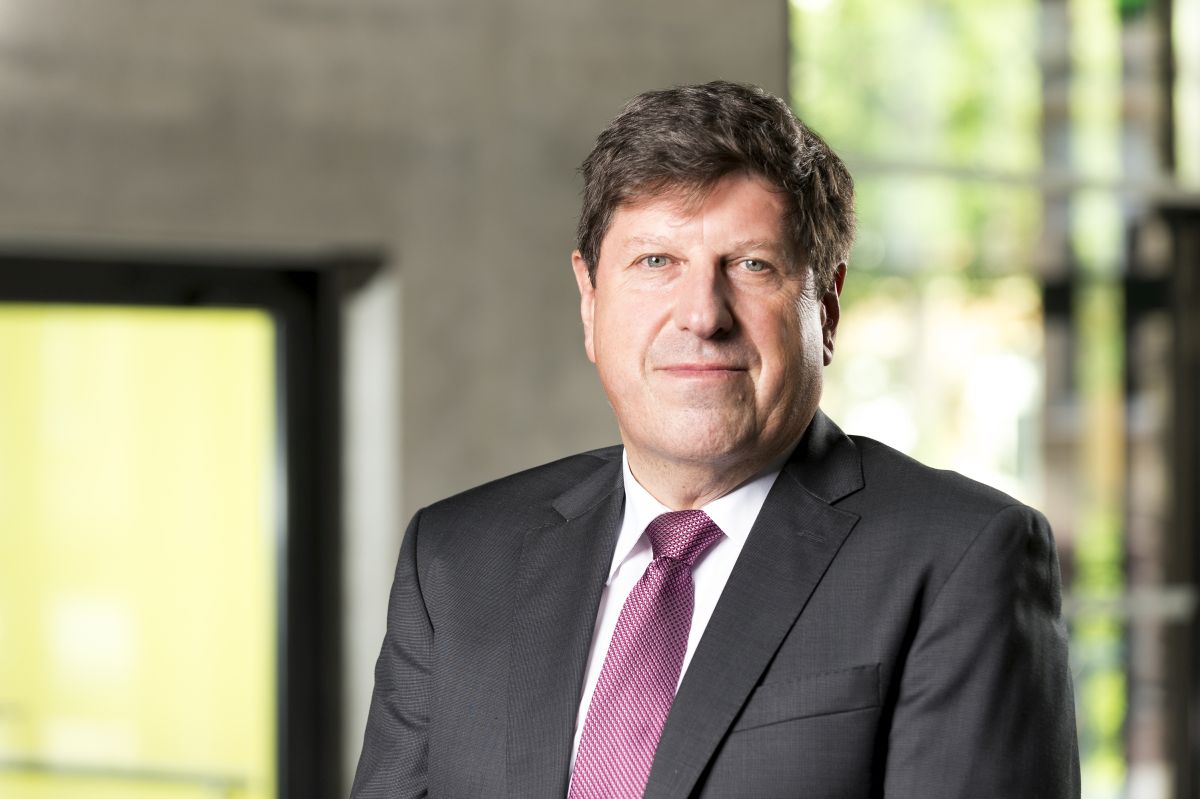Living the Change
Professor Thomas Hirth, Vice President for Transfer and International Affairs of Karlsruhe Institute of Technology (KIT), advocates for researchers assuming responsibility and taking on the grand global challenges of humankind in exchange with all actors in society.
He thinks: The Science Week is an ideal space for doing so. In this interview he reveals the idea behind the Science Week and how he plans to bring science and society together with such innovative types of events.
Professor Hirth, KIT has launched the Science Week, a week with a highly diverse program of events, to make science meet the city and the region. What was the reason?
We are powered by our mission. With our research, academic education, and innovation activities, we want to make essential contributions to mastering the grand global problems of humankind. In particular, KIT relies on knowledge transfer. But, of course, people want to know what we are doing at KIT to address topics, such as climate change, mobility transition, and digitalization, and in which way this helps society as a whole. We have long been aware of the need to enhance dialog with the people and to think about new ways of how we as scientists can reach them to fulfill our mission. Living up to this responsibility and promoting research by interaction and dialog with society were central points of our proposal for being granted the status of University of Excellence. The idea of the Science Week was born when writing our proposal.
Why is intense exchange with society so important to develop innovations?
Because innovations have no future when they are developed past the needs of society. Continuous dialog is important for two reasons. First, to show to people the use of our research and of the knowledge and technologies it produces. With this, we deliberately extend our transfer horizon. It is not just exchange with science and industry that is important to us. We also address politics, culture, and the interested public, that is civil society as a whole. And this leads to the second reason. As “The Research University in the Helmholtz Association,” we want to serve the different groups in society in the best possible way. When optimizing our climate models with the help of artificial intelligence and improving weather forecasts, for example, we all will profit, not just a single group. KIT’s leitmotif “Living the Change” perfectly reflects both aspects.
Your leitmotif that is expected to pave the way towards a new interaction between science and society is now being put into practice by KIT’s real-world labs.
You are right. This Science Week is based on the idea of real-world laboratories. They give us the opportunity to test and optimize outstanding and viable scientific solutions together with the citizens across research disciplines. With these labs, we reach the people’s reality and can make them experience new technologies, such as autonomous driving, sustainable climate protection, and humanoid robotics. All these topics will be addressed by the Science Week.
You have just emphasized the responsibility of scientists towards society. How do you support this attitude at KIT?
We would like young people to reflect on what they effect with their research. When they develop a new process or a new algorithm, for instance, they also are expected to think about its positive and negative effects. To familiarize our students with this attitude as early as possible, we have established at KIT the Academy for Responsible Research, Teaching, and Innovation, ARRTI for short. Its training program covers ethical and ecological aspects of new technologies and will be open to all disciplines – natural sciences, engineering, humanities, and social sciences.
With the Science Week, you will enter new territory. What is your hope associated with it?
I wish that this event will develop brilliance far beyond this week and far beyond the region of Karlsruhe. I would like the Science Week to become a point where people like to meet and from where they can take home many new ideas. But also we at KIT will take up ideas from the dialog with the public. In any case, we plan to continue and advance this event after its premiere this October. The KIT Science Week is expected to be no singular event.


